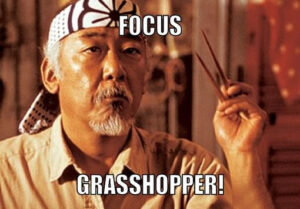How do you exactly focus your thoughts on one thing and that thing alone? How can we ensure that different tasks do not compete for our attention? Check this discussion about bright-line rules.
What’s a bright-line rule?
A bright-line rule is a clear and a definite standard that acts as your basis in everything you do. From your personal to your professional life, bright-line rules clearly tell you whether or not you should be doing something, how often, and why.
So let’s use an example for the rest of this post:
You’re known to be an employee who always stays up for unpaid overtime for whatever reason on Fridays. You stay back for a minimum of four hours.
How do you set up a bright-line rule?
Because you’re staying back in the office for ‘whatever reasons,’ there’s a possibility that you do even when it’s unreasonable or unimportant. It could be that because you’re used to doing it, it has become a Friday night habit.
People will tell you that such isn’t healthy. They’ll tell you that you have the rest of the week to complete all of your tasks and yet, you still find a reason to stay behind when everyone’s already left to enjoy the weekend.
For your part, you know that what they’re saying is true. So you tell yourself that you should only stay behind for important reasons. These ‘important reasons’ is what you should work on identifying so that you’ll know when you should stay back or just head home.
So how do you do it?
First, clarify what ‘important reasons’ mean to you. Does it mean that you should stay back if a co-worker turned in a report late and that you need to look at it in preparation for Monday? Does it mean that you have a meeting on Monday so you need to prepare everything on Friday evening? Does it mean that when you’re travelling on a Monday, you should stay behind on a Friday to make sure that everything in your office is in order?
There can be many things, but what’s important is setting a clear line about when and why you should be staying late in the office on Fridays. By setting clear conditions to yourself, you’ll find that there are Fridays when you leave on time with everyone and there are times when you really have to stay behind.
So you might say something like:
- I’ll stay back for one hour more on Friday night if, and only if, I’m out of town the following Monday to make sure that I’ve submitted all of my reports, and that no one will wait on them until I get back.
- I will not stay back on Friday night if a colleague of mine fails to pass his or her report on Friday morning.
Bright-line Rules as Bad Habit Breakers
As you can see from our example, you clearly have an idea now about when you should and should not stay behind. This leads you to realize that staying back in the office for whatever reason has been a bad habit all along. You know that there’s things like time management, productivity and efficiency, and teamwork. You know that all of these contributes to the success of your organization without you staying back every Friday. So in a sense, bright-line rules are keys to eliminating bad habits.
For one, bright-line rules help you become empowered. You’re no longer staying back because of a co-workers fault. You’re staying back because you’re a responsible team member and that you don’t want people to be waiting on you.
And two, you’re more decisive. You make about a thousand decisions during the day. Taking one off of your list helps a lot in conserving your energy so that you can make room for more important choices.
















